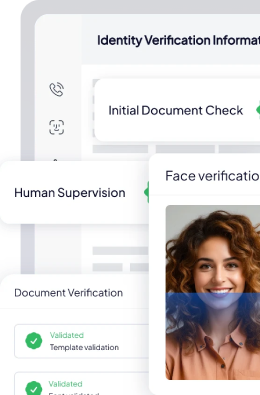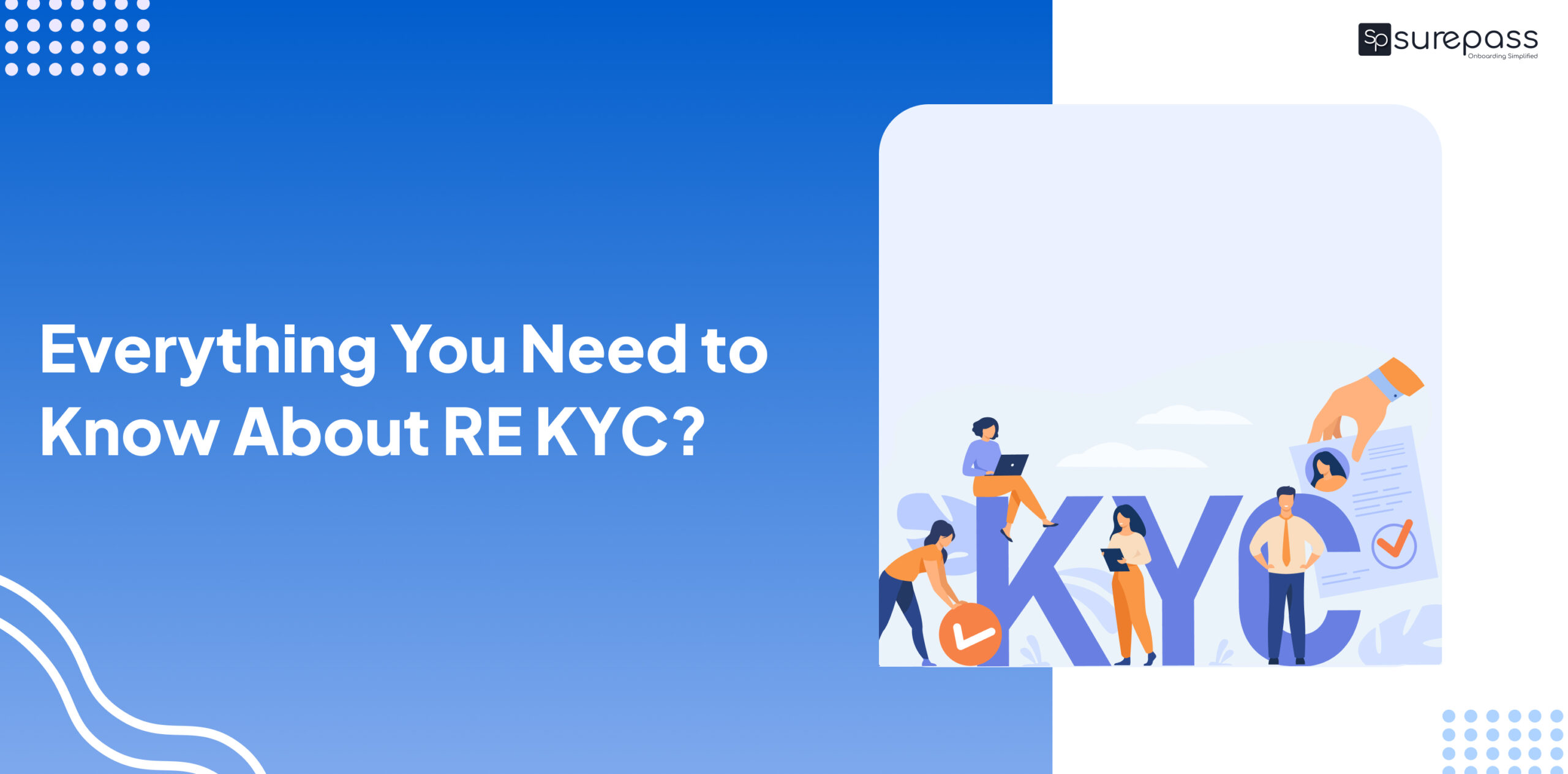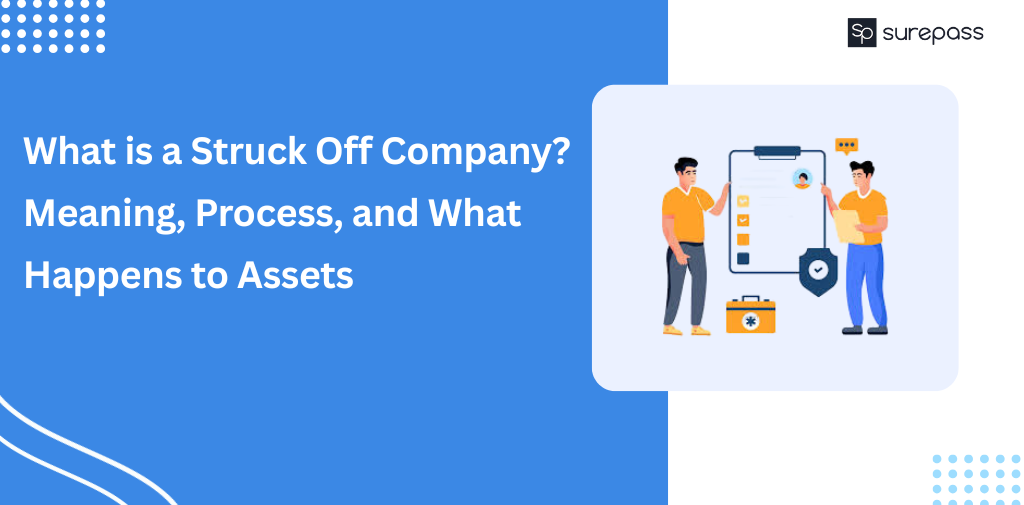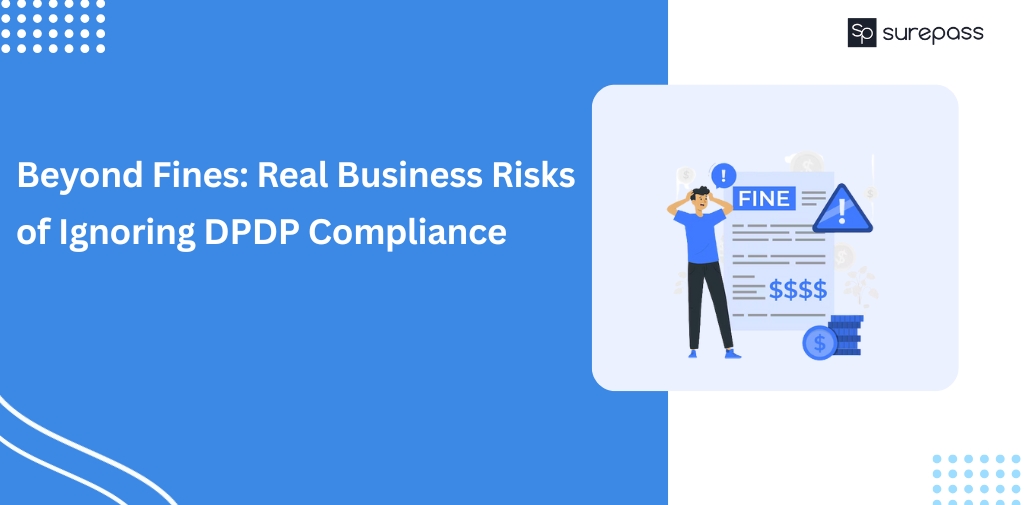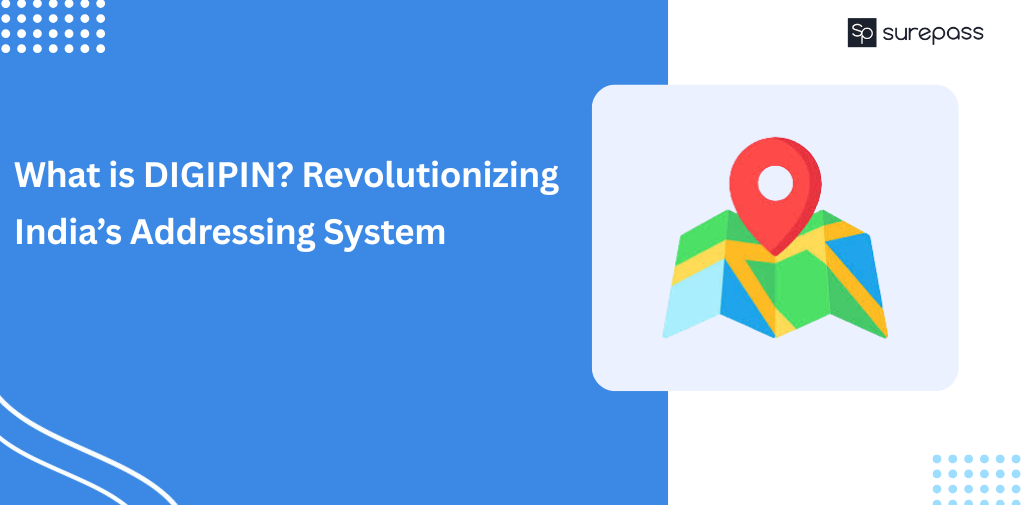What is Re KYC?
Know Your Customer (KYC) data is the paperwork and contact information received while opening a bank account. According to the RBI’s recommendations, banks may require Re KYC from clients at regular intervals to maintain the data up to date, which the consumer can do by filling out a Re KYC form. For example, if your personal or contact information changes, the Re KYC procedure will update it. The primary goal of this approach is to detect and eradicate unlawful behavior and fraud across all financial platforms.
Re KYC Meaning
According to RBI KYC criteria, banks must update KYC documents in their account holders’ records on a regular basis.
As a result, in addition to the KYC procedure done at the time of account opening, account holders must perform Re KYC and supply the necessary documents at regular intervals to avoid any limits being imposed on the account in compliance with standards.
How To Submit Re KYC Documents:
- Visit your local bank and submit the fully signed Re KYC form, along with a copy of your valid KYC documents.
- Individual Resident Customers (excluding Minors) having an Aadhaar Number and an Original PAN can do Video Re KYC (Re KYC via Video Call).
- If there is no change in KYC information or address, the fully signed self-declaration form will be sent, couriered, or delivered physically.
- Individual Resident (other than Minor) clients can also submit their request for periodic KYC updates (Re KYC) from their registered email ID to the relevant bank email, along with a scanned copy of the necessary documents: Completed and signed self-declaration form in the appropriate format.
- PAN and a photocopy of an officially valid document (OVD).
When is Re KYC required?
The KYC (Know Your Customer) information is updated when the account is opened. According to RBI norms, banks may seek Re KYC at regular periods to maintain their records up to date. If your personal or contact information changes, the bank records will be updated via the Re KYC procedure.
KYC processes for certain individuals are described as follows:
- High-Risk Clients: For high-risk customers, banks would update their data every two years. A high-risk client must go to their local bank to give updated identity, KYC, and address information.
- Medium-Risk Clients: The bank will update their information every eight years. A medium-risk client, like a high-risk customer, must physically visit their bank to present documents.
- Low-Risk Consumers: Banks will update low-risk customers once every ten years. In contrast, a low-risk consumer may not be required to visit their bank in person for Re KYC.
If there are no address changes, a low-risk customer’s KYC verification can be updated using the following ways.
- Banking over the Internet
- Mobile Banking for the Bank.
- Re KYC update link delivered to the customer’s registered email address.
- The Re KYC update link is provided using the customer’s registered mobile number.
- SMS-based ATMs
If the customer’s address changes, the new address will be retrieved by their registered email address or cell phone number, ATMs, online banking, or mobile application. Within two months, the claimed or new address will be authenticated using address verification letters, contact point verification, deliverables, and other means.
If the customer was a minor when their account was started, Re KYC would be completed after they reached the age of majority. Their bank must get a fresh image and update their Customer Due Diligence (CDD) documents in compliance with current CDD rules. If required, the bank will undertake a fresh KYC for these customers.
Automate your KYC Process & reduce Fraud!
We have helped 200+ companies in reducing Fraud by 95%
Re KYC Procedure
Step 1: Fill out the declaration form.
When advised by the bank that their KYC has to be updated, the customer must fill out a Re KYC form with their personal details.
Step 2: Documentation.
Following that, the client must self-attest to copies of approved KYC Identity Verification and Address Proof, which will be sent with the Re KYC form.
Individual clients may utilize the following documents:
- E-Aadhaar letter obtained on the UIDAI website /Aadhaar card issued by the Government of India.
- Election card or voter’s identification card: Requirements include a valid permanent driver’s license.
- An NREGA employment card signed by a State Government Official. Letter issued by a Gazetted officer, with a duly certified image of the individual, accepted exclusively for opening a low-risk Basic Savings Bank Deposit Account (BSBDA).
Documents accepted for establishing address:
- Valid passport (Passport Verification)
- PAN Card and Permanent Driving Licence (except those granted by the Maharashtra government).
- Election or Voter ID card (with address)
- E-Aadhaar letter acquired from the UIDAI website or an Aadhaar card issued by the government of India
- A NREGA Job Card, lawfully signed by a State Government official, a letter issued by a Gazetted officer, and a formally certified photograph of the individual are the sole requirements for creating a low-risk “Basic Savings Bank Deposit Account” (BSBDA).
- Employees must possess an identity card issued by the Central or State Government, a public sector organization, a scheduled commercial bank, or a public financial institution.
Step 3: Processing.
Once the paperwork and form are submitted, the Re KYC procedure takes around 10 days to complete.
Non-Individual Customers: They must personally visit the bank branch to submit the completed Re KYC form along with the appropriate proof.
NRI consumers must submit the Re KYC form and certified documents to the branch by email using their registered email address.
Re KYC through Video Process
Individual clients over 18 with appropriate Indian address evidence can complete the RBI-mandated Re-KYC procedure via video. V-CIP stands for a video-based customer identification technique.
To complete the Re KYC procedure by video, you will require a mobile phone or computer with a camera, microphone access, and an internet connection, as well as your PAN and Aadhaar cards. After submitting their basic information, a bank professional will do the necessary checks via video chat before guiding them through the rest of the process.
The RBI announced a milestone statement on May 5, 2021, making the KYC procedure available to all individual clients via video.
Surepass ‘s KYC API
Surepass ‘s KYC API is a cutting-edge solution that enables businesses to expedite their Know Your Customer (KYC) operations by including sophisticated features like liveness detection, biometric authentication, and ID verification.
Liveness detection is an important feature of this API since it ensures that the individual undergoing KYC is physically present and is not attempting to utilize a static picture or video for identity verification. This technology uses face recognition and movement analysis to certify the user’s presence in real time, which improves the security and reliability of the KYC procedure. Businesses that include liveness detection can dramatically lower the danger of fraudulent activity and identity theft.
\Another outstanding feature of Surepass ‘s KYC API is biometric authentication, which allows organizations to use biometric data such as fingerprints, face recognition, or iris scans to verify users. This improves both security and user experience by eliminating the need for traditional passwords or PINs.
The API also enables government ID verification, which allows organizations to confirm the authenticity of official papers including passports, driver’s license, and national IDs. By cross-referencing information with government databases and employing advanced algorithms, Surepass ‘s KYC API ensures that customers’ identities are accurately verified, assisting businesses in complying with regulatory requirements while providing a seamless and secure onboarding experience for their users. It has already provided ID verification and Digital KYC services to more than 25 enterprises and handle around 3 million verifications in a month.
